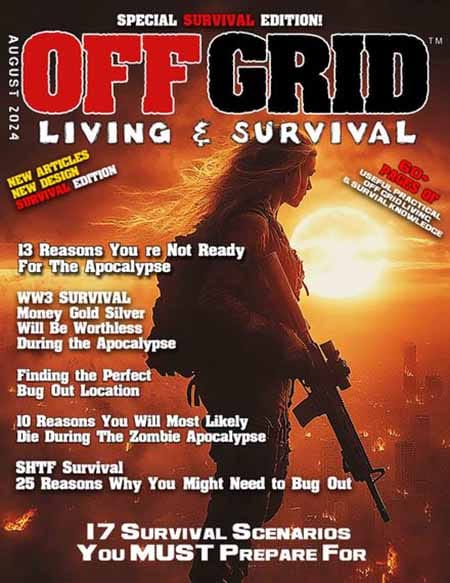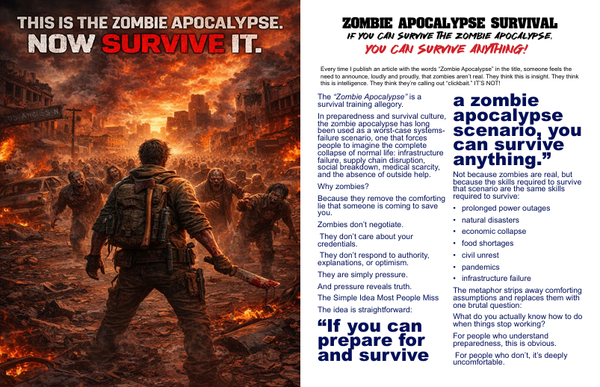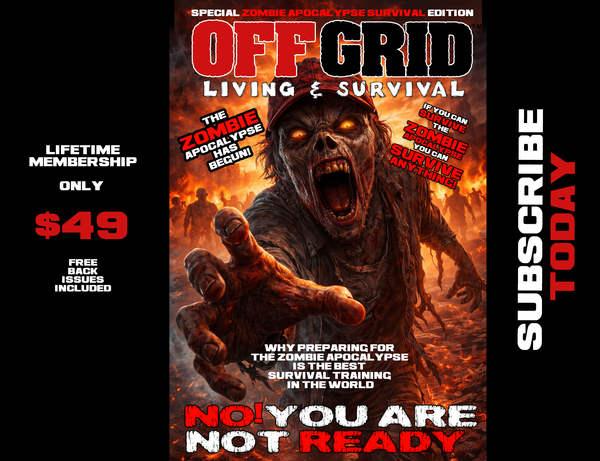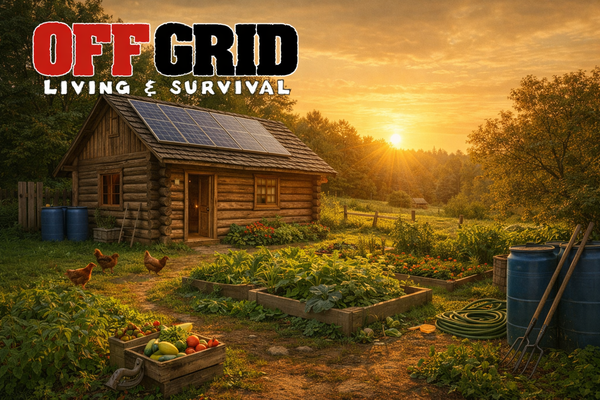Red Tape vs. The Right to Live Free Off Grid
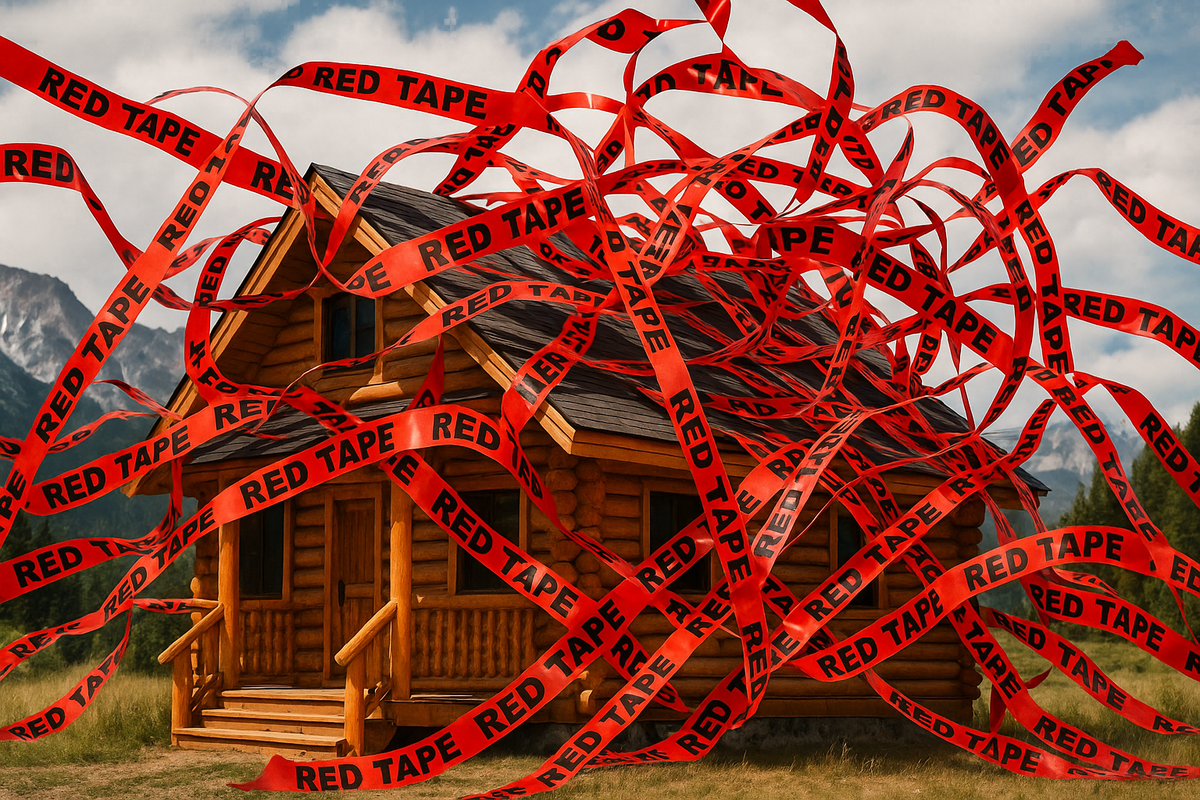
Expanding on a comment I made about well and septic and how it's overregulated and puts too much financial and time delay burden on folks.
One of the main reasons folks go off grid is to save money on costs of living. It's more upfront cost to have to install a septic system as well. I'm aware of and understand most counties require them, but the problem is cost in both money and time.
However...Most people don't have $10k laying around for a septic (I've seen them go for upwards of $30k) to and well drilling for $10 to $30k. That's a massive expense to someone on a budget and in many cases it's a prohibitive cost.
It puts undue financial burden on people. And that's not even counting all the surveying, soil and water testing and permit cost and application fees, waiting for approvals and inspections.
It's a giant bureaucratic burden and extremely inefficient and expensive. These two things alone (well and septic) are part of the extended governmental overreach and overly restrictive regulations that are stifling and unduly oppressive. In many cases there are better ways to go about doing it.
Composting toilets, recycling greywater for the garden, shallower sand-point wells that can be DIY, rainwater collection, and what I mentioned above, what I want to do, is a solar powered water generator.
No need for the $20k to $60k expense for drilling a well and installing septic, (it isn't guaranteed for the well to even hit water so you could just be throwing money away; it's too much risk for people on a budget;
This article continues for subscribers...
NOTE: This is a sample of what you can expect in the weekly Off Grid Digest™ newsletter delivered to your inbox every Sunday morning.
Subscribe today for only $9.99/month
not to whine, but that's not cool, but it's accepted and shouldn't be) I believe we've been way too conditioned to just accept things the way they are and we're not using our constitutional rights to address local government for grievances.
We have that right to challenge the law (not break it) but challenge it and put pressure on those local lawmakers that are making things harder on us to live our lives and provide for our families.
Building out a $10k to $30k septic system is cost prohibitive to many folks. People don't have the money to be throwing around like that.
This isn't just about wells and septic systems. It's about everything. It's about our way of life. It's about living and providing a home for our families.
The counties seem to be biased towards those with money to build, and seem to be forgetting that not everyone has a large budget. Perhaps they need to be reminded that not everyone can afford these expenses.
If you don't have a large budget are you supposed to just suck it up and not build?
Are you supposed to put off your dreams for another decade while you work and slave away? While your kids grow up and graduate and move out? If it takes a decade to change the law, or 3-5 years to fight in court just to update the law to not be economically discriminating against folks on a budget who can't afford certain things, it's unfair, uncool, and while we're all waiting on the gov to change, our kids are growing up and moving out.
By then it's too late.
Article continues below...for paid subscribers only...
We need changes now. Not tomorrow, not next week or next month. Now!
We needed fair and reasonable changes long ago.
We're not asking for anything unreasonable. But it is unreasonable to price everything out of reach of the average person, the working class folks who built this nation, who can no longer afford the cost of living or to build according to the overly restrictive laws and regulations that are literally stifling our country and our people.
Now it's time for change.
It's time for officials to listen and step up and do the right thing. Ethically and morally, and legally we must force them to change through a concerted prolonged legal effort. We're not asking for unreasonable changes, just fair accommodation for the economically challenged folks that need a home and a place to live too.
Because if the county won't issue you a building permit to build your cabin or home, you have nowhere to stay but in your RV, travel trailer, or tent on your land.
And then you have the county issuing you warnings and fines for camping on your own land "without a permit", which makes camping out on your own land illegal. And THAT should be illegal for them to do. It's your land!
If you're on a budget and need a place to live, you live the best way you can with what you've got.
Counties and city councils need to understand this and take this into account and they need to educate and train their clerks to be more accepting and accommodating to alternative living solutions and lifestyles.
The regulations are overreaching. They're unduly oppressive. They're cost prohibitive. And they put undue financial burden on the landowner who may be on a budget.
These restrictions should be reworded, lists of variances and exceptions allowed and approved more timely and efficiently, costs and approval times need to be lessened and reduced.
If counties, cities and townships (zoning commissioners and city councils) can't seem to make these changes or they refuse to make accommodation and offer a reasonable affordable path for those whose budgets prohibit such high upfront expenses, then the law needs to be changed through public pressure and legal action, because it's causing poverty and harming people financially, causing pain and suffering and hardship, and that's wrong.
We can do better. And we need to petition local municipalities to change and update the law and/or where the regulations are creating these overly burdensome pain points.
It doesn't need to be this difficult. In some places it's better, but in others it's insanely difficult and even impossible to build without jumping through way too many bureaucratic hoops.
Some laws should be changed, others should be deleted/repealed/abolished entirely. Some need to be updated to ease the burden on folks looking to become landowners and homeowners.
There are much better ways to do things. So let's do better!
If you live in an area with overly restrictive cost prohibitive and inefficient local governments and regulations, reach out to your local county and city council officials and speak with them.
Let them know what you'd like to do, see if they can accommodate, if they refuse and try to hide behind the overly restrictive regulations, then you may have to go over their heads to the state level, especially if the state regulations are the culprit.
State regulations can also be a problem and it's more legal work to get them changed.
Phone calls and letters to your state's representatives are important and might get things moving, but unlikely. It may take massive public pressure and even legal action to make changes to the regulations, or at the very least, create a workaround, an exception with a list of approved exceptions and alternatives for things like:
COMMON REGULATIONS THAT NEED REFORM OR EXEMPTIONS
Septic System RequirementsForces costly systems even when alternatives like composting toilets are viable.
Well Drilling Mandates
Requires deep-drilled wells even when rainwater harvesting or sand-point wells suffice.
Land Clearing Permits
Restricts tree removal and brush clearing, even for fire safety or garden/farm prep.
Minimum Lot Size Laws
Prevents affordable, small homesteads by requiring 5–10+ acres minimum per dwelling.
Minimum Dwelling Size Requirements
Blocks tiny homes and minimalist builds with arbitrary square footage mandates (e.g., 800–1200 sq ft minimum).
Camping on Your Own Land
Criminalizes temporary RV or tent living even while building a permitted home. Camping out on your land while building your home requires a conditional use permit, but most counties I've talked to are hesitant and resist issuing/approving longer term camping permits if you're DIY building.
Owner-Builder Restrictions
Requires you to hire licensed contractors and prohibit DIY construction.
Permits for Temporary Structures
Requires expensive permits for tool sheds, storage containers, greenhouses, or tents.
Off-Grid Power Restrictions
Bans or heavily regulates solar, wind, or battery setups in favor of forced grid hookups.
Forced Utility Connections
Mandates hookup to municipal water, electric, or sewer even when you're fully off-grid.
Rainwater Harvesting Limits or Bans
Prohibits or restricts collection of rainwater for personal use, even in drought-prone areas.
Greywater Reuse Bans
Prevents recycling sink, shower, and laundry water for gardens, trees, or non-potable reuse.
Alternative Sanitation Bans
Outlaws composting toilets, incinerating toilets, or other eco-friendly waste solutions.
Prohibition on Shipping Container Homes or Unconventional Builds
Blocks the use of containers, earthbags, straw bale, cob, or recycled material construction.
Agricultural Use Restrictions on Residential Land
Prohibits chickens, goats, gardens, or small-scale homesteading activities. This is food. It’s necessary to be self-sufficient and you can’t do that with prohibitions on livestock.
Setback and Easement Overreach
Forces excessive distance from property lines, reducing usable land.
Occupancy Limits for Family or Shared Households
Restricts multi-generational or shared housing by zoning out multiple adults per lot.
Permit Expiration Timelines
Forces unrealistic timelines to complete builds, punishing people building slowly as they can afford it.
Impact Fees and Infrastructure Fees
Charges massive upfront fees for road, school, or utility infrastructure, even on raw or remote land.
HOA-Backed Zoning Overlays
Allows local homeowner associations to override landowner’s property rights through deed restrictions.
Arbitrary Aesthetic or Material Mandates
Requires specific siding, roofing, or building styles, driving up costs.
Vehicle Dwelling Bans
Criminalizes living in vans, buses, RVs, or other mobile homes — even on private land.
Burn Permits for Brush or Debris
Requires permits for even small, seasonal or fire-safe burns on rural land.
Water Usage Restrictions on Private Wells
Limits how much water you can draw from your own well for personal or agricultural use.
Building Code Inflexibility
Applies unrealistic unrelated irrelevant suburban or commercial building codes to rural or off-grid builds, raising costs and red tape.
Solar and Wind System Size Caps
Caps the size of renewable power systems based on arbitrary zoning limits.
Owner Builder
A lot of counties require you to hire licensed contractors, and prohibit you from building your own cabin. Some counties even force you to choose from a state approved list of licensed contractors (which feels a lot like cronyism to me and makes me wonder who's getting kickbacks and lining their pockets with the extortive financial burden and costs you're paying for).
ADDITIONAL REGULATIONS THAT NEED REFORM OR EXEMPTIONS
Temporary Living Restrictions During Construction Prohibits people from living on-site (in RVs, campers, or tiny homes) while slowly building a permanent home — even when they own the land outright.
Time-Limited Use Permits for Alternative Dwellings
Allows alternative housing (tiny homes, trailers, yurts, etc.) only under strict time constraints (e.g., 180 days), forcing eviction or demolition after the time expires.
Yurt, Tipi, and Tent Dwelling Prohibitions
Outlaws long-term use of non-standard or cultural dwellings, even when safely and sustainably used.
Seasonal Occupancy Laws
Restricts living on land year-round, labeling people as "seasonal" even when they intend to live full-time off-grid.
Off-Grid Home Insurance Barriers
Insurers refuse or overcharge to cover off-grid homes, creating a financial blockade enforced by lenders and policy requirements.
Driveway or Road Access Permitting Obstacles
Requires expensive engineering, gravel depth standards, or professional installation for simple driveways, even on private property.
Stormwater Drainage Compliance
Forces grading, trenching, and erosion control plans even when the impact is negligible or on flat rural land.
Soil Compaction and Fill Dirt Regulations
Regulates or prohibits use of fill material, even natural dirt from elsewhere on the property, citing environmental disruption.
Wetland Misclassification or Overreach
Designates minor low-lying or seasonal wet patches as wetlands, halting development or use of land without expensive studies and permits.
Fire Code Mandates Not Suited to Rural Areas
Requires suburban fire hydrants, turnarounds, or spacing that makes building on rural lots nearly impossible.
“No Unpermitted Structure” Enforcement
Targets sheds, fences, chicken coops, or animal shelters built without permits — even if safe and used for homesteading.
Light Pollution and Outdoor Lighting Laws
Restricts the type and brightness of outdoor lighting, even in areas with no close neighbors or sensitive wildlife zones.
Noise Ordinances on Rural Property
Enforces decibel limits on farm equipment, generators, animals (like roosters), or off-grid energy systems — limiting self-sufficiency.
Zoning That Bans Live/Work Setups
Prevents combining residence and home-based business, especially in agricultural zones — stifling rural entrepreneurship.
Prohibited Alternative Foundation Methods
Disallows pier-and-beam, skids, or earthbag foundations — forcing full slab or permanent foundations even when unnecessary.
Restriction of Unconventional Heating Methods
Limits or bans use of wood stoves, rocket mass heaters, or biofuel systems, often under air quality ordinances.
Prohibition of Outdoor Clotheslines and Solar Drying
Enforced by outdated neighborhood ordinances or HOAs that ban visible drying racks or clotheslines — despite sustainability.
Fence Height and Material Restrictions
Limits fencing type, height, or location even on large rural parcels, restricting privacy and livestock containment.
Access to Affordable Alternative Building Materials
Bans use of pallets, reclaimed wood, salvaged metal, etc., even when structurally safe, pushing people into expensive new materials.
Energy Inspection and Compliance Penalties
Forces strict energy-efficiency standards that only new, expensive homes can meet — punishing people who build simple or small.
Building Moratoriums
Outright halts to issuing permits in entire counties or zones due to overwhelmed planning offices, water disputes, or political motives.
And the list goes on…I’m sure you can think of some things that I haven’t mentioned here. These are just some of the main regulations, local ordinances and overly restrictive, cost prohibitive, inefficient, bureaucratic red tape that cause undue hardship and unnecessary financial burden on hard working class folks who just want to own their own land and build their own cabin.
It’s not about not liking the law or not wanting to follow the law.
It’s about the fact that when added all up, many of these laws are prohibiting some things that should never be prohibited in the first place, creating unnecessary, unfair and expensive burdens on people, and this harms them in ways that can cause harm and hardship that never should happen.
Eventually, if we don’t change, it will be illegal to live. Illegal to build. Illegal to camp. Illegal to grow food. Illegal to raise chickens. Illegal to catch rain. Illegal to live in your van, cabin, tent, or tiny home.
This isn’t freedom. It’s bureaucracy gone mad.
And whether these laws are written out of greed, ignorance, or apathy, the result is the same:
- Economic discrimination.
- Poverty enforcement.
- Criminalization of the poor and self-reliant.
It doesn’t matter if it’s “accidental.” If the law crushes the working class under a mountain of red tape, it is immoral, and it must be changed.
We’re not saying to break the law. We’re not asking to fix it.
We're demanding it be fixed or we will fix it legally with legal action and by voting out those that have failed us.
What we want is simple.
To live simply, legally, and free, without needing hundreds of thousands of dollars and an attorney to live on our own damn land how we see fit. We're not hurting anyone. We just want to live free, regardless of whether we're poor or not.
Eventually, if we don’t change and update and abolish certain laws, it will become illegal to do anything.
You won’t be able to move or build anything without breaking some kind of law somewhere, even unknowingly. That’s not just ethically wrong for local and state and federal governments, it’s downright immoral when it creates undue burdens for people and pushes them into financial hardship. It’s economic discrimination. It's unfair, unkind and unethical, and it should be illegal.
Whether deliberate or intentional doesn’t matter. It’s the reality we live in today.
Too many overly restrictive laws. Overregulation. Inconsiderate regulations that do not consider the burden it puts on rural living, DIYers and folks just looking to own their own little homestead, build their own home, grow their own food, raise their own livestock, and live their lives free from the confines of a system that’s lost its damn mind.
(mic drop)
If you liked this article, subscribe now for only $9.99 a month or $99 year (save 18% of the monthly price).
